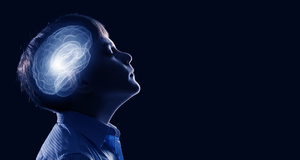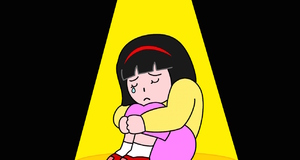Wordsworth's Prescient Baby: Conceptions of the Mother-Infant Relationship in the Development of the Self (1790s-1890s)1790s-1820s: The Age of Reason and PracticalityDuring this period, the child rearing theories of Locke and Jean-Jacques Rousseau (1712-1778) were the most popular and pervasive of all pedagogical advice. Rousseau’s novel Émile, or On Education (1763) has been heralded as the most widely read child-rearing manual of its age, distinct from the many medical handbooks that were in frequent circulation during the eighteenth century. 22 The novel continued to inform parents on how to rear and educate their offspring well into the nineteenth century. Though Émile was not written as a detailed handbook on parenting, we shall see that Rousseau’s views of the mother’s duties were nonetheless influential. In Émile, Rousseau stressed the importance of ‘quality’ maternal care during early infancy. In his discussion of breastfeeding in Book One he recognised the bond that develops between mother and infant if she undertakes breastfeeding herself.23 The mother who breastfeeds was less likely to neglect or harm the baby, as opposed to a disinterested wet nurse: ‘the infant, who is ill attended, will have time enough to perish, before his nurse can behold him with the fondness of a parent.’24 In her Thoughts on the Education of Daughters (1787), Mary Wollstonecraft discussed Locke and Rousseau’s child care advice. Like Rousseau, Wollstonecraft stressed the maternal bond that would develop from breastfeeding- ‘The suckling of a child also excited the warmest glow of tenderness- Its dependant, helpless state produces an affection, which may properly be termed maternal…arises quite as much from habit as instinct’.25 However, inspiring the infant’s tenderness in addition to the mothers through suckling is neither acknowledged nor explored in either Rousseau or Wollstonecraft’s works. Thinkers of the period were instead preoccupied with the mother’s role in ensuring the infant’s physical well-being. The poet and physician Hugh Downman’s popular poem ‘Infancy or the management of children: a didactic poem in six books’ (first published 1774, in its seventh edition by 1809) stressed the safeguarding of the infant’s health as the most important responsibility. He wrote ‘Health is the greatest blessing man receives from bounteous Heaven’ and on ‘the management of these first years depends the future man.’26Though in poetic form, the poem contains advice on the management of children rather than anything resembling the detailed philosophical and psychological model offered in The Prelude. In striking contrast to Wordsworth, Downman implores the mother to observe her child’s biological growth, the infant’s mind developing independently from her physical ministrations: With me then turn thy sight With Rousseau and Wollstonecraft, Downman extols the benefits of breastfeeding and maternal bonding in the service of physical wellbeing: Know the first efflux from the milky fount As we have seen, Wordsworth believed that a mother’s love for her child did more than just predispose the mother to bond with her infant, thereby ensuring its survival. The mother’s love would contribute to the child’s emotional and spiritual development and be the basis of its developing self, something that neither Rousseau nor his contemporaries discussed. Indeed, Rousseau imagined the prototype Émile as an orphan. A rare exception to these general ideas was George Armstrong’s Account of the Diseases most Incident to Children (1767). Echoing modern attachment theory, he recognised that ‘If you take a sick Child from its Parent or Nurse, you break its Heart immediately.’29 Although he did not expand on this understanding of maternal deprivation to form a theory of development of the self, nonetheless these thoughts were exceptional for the period. The emphasis on survival is understandable when considering the high rate of infant mortality. The eighteenth and early nineteenth century saw nearly half of all babies die before they reached their fifth birthday, the majority before their first.30 Indeed many of the diarists such as Sara Coleridge and Charles Darwin experienced the loss of a young child. Much focus was therefore given to the physical and practical concerns of bringing up children- their clothing, nutrition and health, instead of looking at psychological and emotional factors. Michael Underwood’s Treatise on the Diseases of Children (1789) was specifically concerned with helping mothers identify and treat the various illnesses their child might suffer. More generalised manuals on a mother’s practical duties included William Buchan’s Offices and Duties of a Mother (1800) and his later Advice to Mothers (1803). 31 Josiah Wedgwood II’s baby diary entitled ‘Hints on the Management of the Children’ (1797-1799), also centres on the practical concerns of cleanliness and physical wellbeing.32 Hardyment reasons that such high mortality rates led to a mood of resignation.33 Indeed, becoming a mother during this period entailed a much greater risk of death and loss than it does today or even later in the nineteenth century. When a parent’s primary concern was keeping themselves and their child alive, inevitably less attention was paid to observing or even thinking about emotional and psychological needs. Baby diarists of this period such as Catherine Stanley and Josiah Wedgewood were fortunate as their upper-class lifestyles provided them with additional child support, from maids and servants to necessary medical care. However neither diarist shows awareness of the effect of the mother on the psychological wellbeing on the infant, reflecting an absence of these concerns in the public’s mind. The fear of losing a child in infancy must have had a profound effect on how far mothers could allow themselves to get attached to their babies and recognise the central value of their role. Catherine Stanley (1792-1862) of Alderley, Cheshire began her diary in 1812 when her first child Owen was nine months old. In the preface Stanley quotes lines from Scottish philosopher Thomas Reid: ‘If we could obtain a distinct and full history of all that hath passed in the mind of a child from the beginning of life… would probably give more light into the human faculties, than all the systems of philosophies.’34 Stanley clearly felt recording her observations would facilitate a better understanding of their natures and characters. Rousseau’s influence is also evident in Stanley’s copying of large excerpts from his novel, ’La Nouvelle Heloise’.35 However she lacks any awareness of the mother-infant bond or the critical nature of her own involvement as emotionally formative. She leaves both Owen and her youngest daughter Mary, aged 7 months for six weeks between July and September 1813, but does not contemplate the effect this may have on them. On her return on September 12th 1813 she writes: ‘Mary did not know me and was frightened the first day’ but adds that ‘she can raise herself on her feet from the floor by pulling a chair- she weighed Sept. 19th 15 lb.’36 Unlike some sources from the 1830s, Stanley reflects little on her relationship to Owen and Mary. Instead she muses upon her role as educator and moulder of character and is keen to instil qualities and virtues through training. In April 1818 she writes ‘How difficult it is to guide a child enough & not too much in point of feeling…you run the risk of creating an artificial character’37 She also complains of Owen’s character as wanting ‘the higher principles & feelings to be instilled-for he is habitually selfish & finds so many interests in everything around him that he has none to bestow on other things…This is a deficiency wh. must be remedied.’38 Stanley’s notions perfectly echo those of Locke. In Some Thoughts Concerning Education (1693) Locke writes that parent’s have considerable responsibility to ensure their children are reared correctly through the formation of healthy habits. By wearing light clothing, taking cold baths, minimal coddling and uncertain meal times the right sort of character could be cultivated. On the other hand, Rousseau idealised the notion of the feral child unchained from the shackles of society and believed the child should develop free from burdensome adult intervention.39 However in spite of their opposing views, both thinkers felt good behaviour was established by carrot and stick methods and that even small babies could learn to associate certain actions with inevitable consequences.40 Stanley attempts this with Mary in 1814: ‘I began Mary’s education yesterday by refusing her some potatoes till she shook her head when I told her. She was obstinate & wd. no-do it & gave her none- today she shook her head the moment I told her’.41 Josiah Wedgwood II (1769-1843) of Cressely, Pembrokeshire began his baby journal in 1797 tailing off by October 1799.42 His four children, Elizabeth (1793), Josiah (1795), Marianne who died early and Charlotte (1797) are all carefully observed. Wedgwood was in his late 20s and had the leisure to record his concerns. Gwen Raverat, a descendent of the Wedgwood-Darwin family writes that he was ‘undoubtedly influenced by more advanced ideas of his day’ on childcare, quoting Rousseau and novelist/philosopher William Godwin.43 Wedgwood was also a friend of poet Samuel Taylor Coleridge who was known for his advanced radical ideas. Wedgwood’s diary, ‘Hints on the management of the children’ as the title suggests reads more like an advice manual than a reflection on parenting or a father’s relationship with his children. He opens with instruction on how to treat a child in pain and later advises on cleanliness and nutrition.44 The children’s mother is barely mentioned- instead Josiah is preoccupied with the servants influence on the children’s characters. Throughout he expresses the Lockean concern for the children’s forming of ‘habits’. He worries about them picking up bad practices from adults writing that ‘All actions hurtful to the child himself will be discovered to see 10 [times] by their consequences’.45 Wedgwood was certainly more engaged in the welfare of his children than was typical of other fathers who from necessary employment or disinterest were not involved in family life. ‘There cannot have been many gentleman of that time’ writes Gwen Raverat, ‘who actually put their three year old sons to bed every night’.46 But Wedgwood does not consider the importance of either parent as a source of emotional care and stability. The preoccupation with the formation of habit and good behaviour in Wedgwood and Stanley demonstrates the pervasive influence of associationist theories. Stanley reasons that Owen’s many phobias ‘must proceed from some accidental association of fancy in his mind wh[ich] it is impossible to trace-sometimes it evidently proceeds from his seeing or hearing an effect without understanding the cause.’47 The sense that habits and ideas are formed out of providing the appropriate environment for associations ignored the importance of internal mental processes and the realm of the imagination that Wordsworth privileged in his theory of mind. In the next section I will look at the 1830s. Some of the aforementioned ideas still held ground, but there is a greater focus on the mother-infant relationship as the crucial determinant in the structuring of the self and character.Continued on Next Page » Suggested Reading from Inquiries Journal
Inquiries Journal provides undergraduate and graduate students around the world a platform for the wide dissemination of academic work over a range of core disciplines. Representing the work of students from hundreds of institutions around the globe, Inquiries Journal's large database of academic articles is completely free. Learn more | Blog | Submit Latest in History |


















